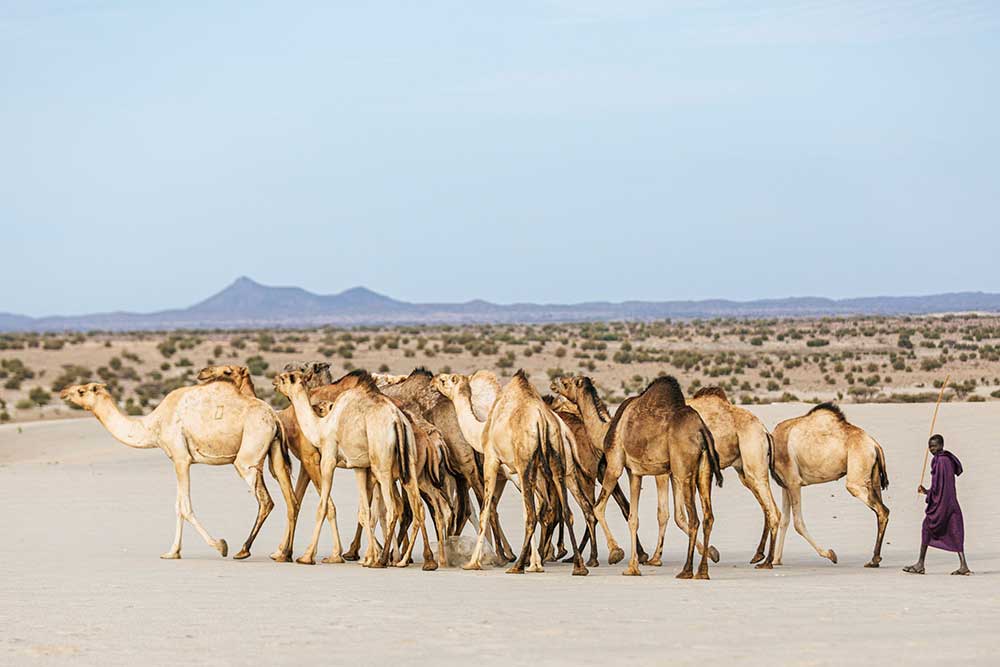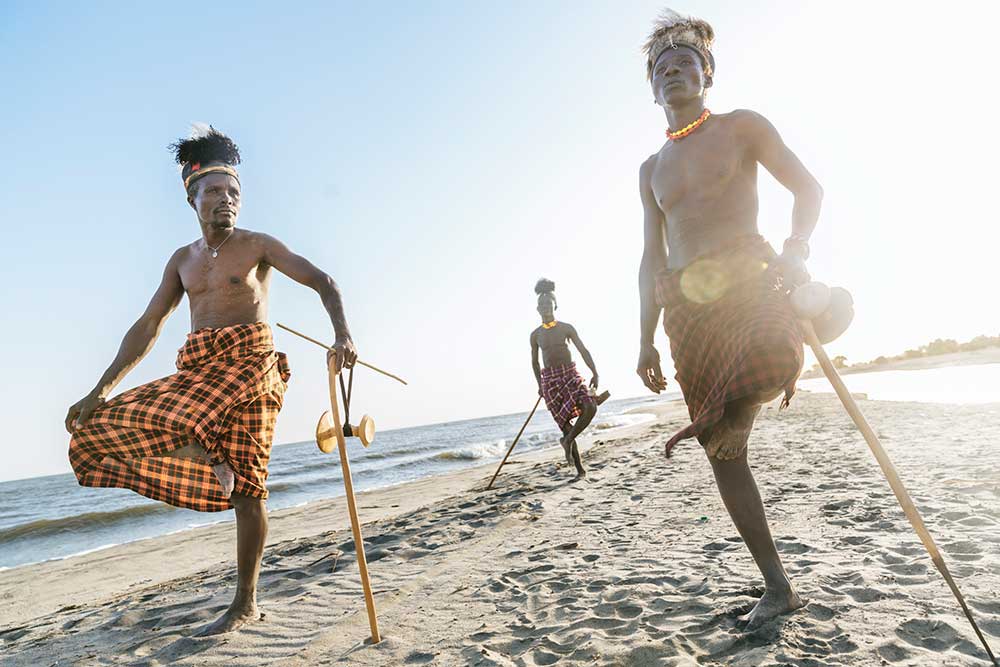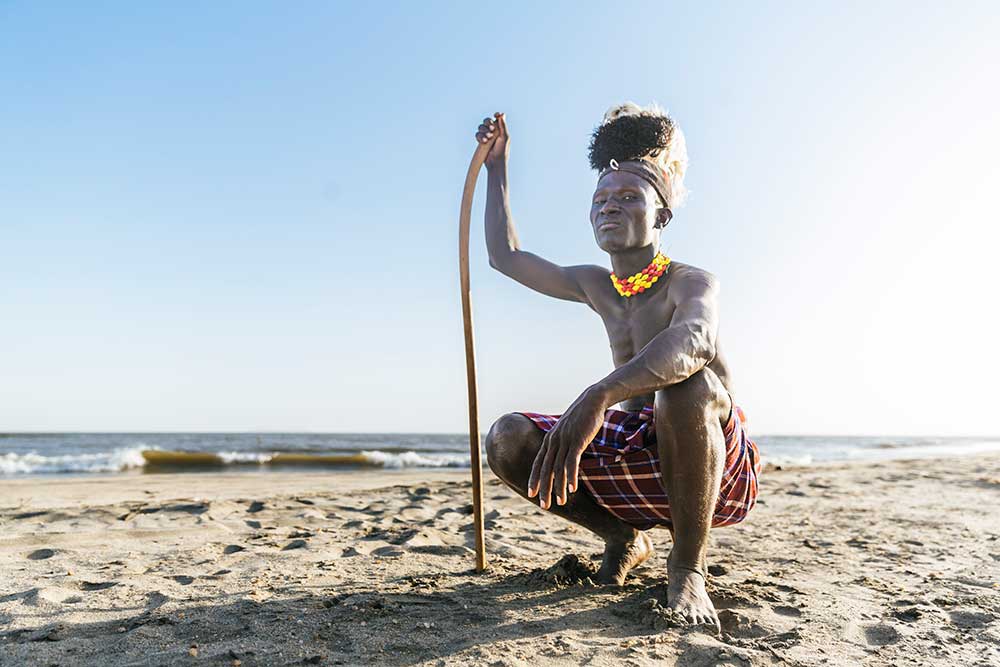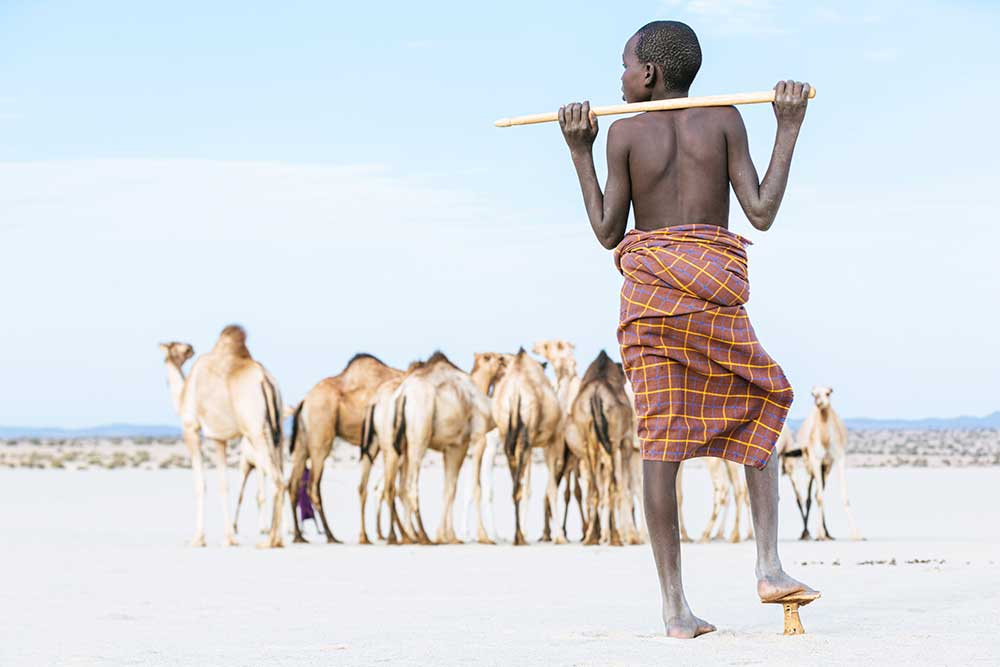Lake Turkana is found in the Kenyan Rift Valley, in northern Kenya, with its far northern end crossing into Ethiopia. It is the world’s largest permanent desert lake and the world’s largest alkaline lake.
The Omo, Turkwel, and Kerio rivers flow into the lake, but lacking outflow, its only water loss is by evaporation. Due to temperature, aridity, and geographic inaccessibility, the lake retains its wild character. It is a discreet oasis with a special atmosphere of tranquillity and a halcyon spirit.
This stark region was in my focus for a few nights – it is a little-visited part of Kenya and one that offers some incredible photographic opportunities! Camels and donkeys are well adapted to the region’s extremely arid environment. They cope better than cattle and goats during drought periods, which in recent times have severely affected life in northern Kenya.
Traditionally, men and women both wear wraps made of rectangular woven materials and animal skins. Today these clothes are normally purchased, having been manufactured in Nairobi or elsewhere in Kenya. Men often wear their wraps similar to tunics, with one end connected with the other over the right shoulder, and carry wrist knives made of steel and goat hide. Men also carry stools (known as Ekicholong) and will use these for simple chairs rather than sitting on the hot midday sand. These stools also double as headrests, keeping one’s head elevated from the sand and protecting any ceremonial head decorations from damage. [Based on an article published in Atlas of humanity.]
About Joe Buergi
Born in 1965 in Stans, Switzerland, Joe Buergi started around 2000 with photography. He studied engineering at the Bale Institute of Technology and now works full-time as a project and team leader for the local government. As a pure autodidact, he developed the knowledge by himself but also by studying the masters. His music photography, together with travel, have become two of his life’s passions.
His photography focuses on music, culture, landscapes, and wildlife, images that reflect a spatial and temporal journey through life. He seeks the quiet moments and the light in whatever context he finds himself. He is an eclectic photographer who enjoys diversity in his imagery. Hence his images range from travel to landscapes and portraits. He believes that photography can capture those inimitable moments and empower us to make a positive change in our world. Through his travels, he has developed his own photographic style. [Text by Freundliche Grüsse] [Official Website]









